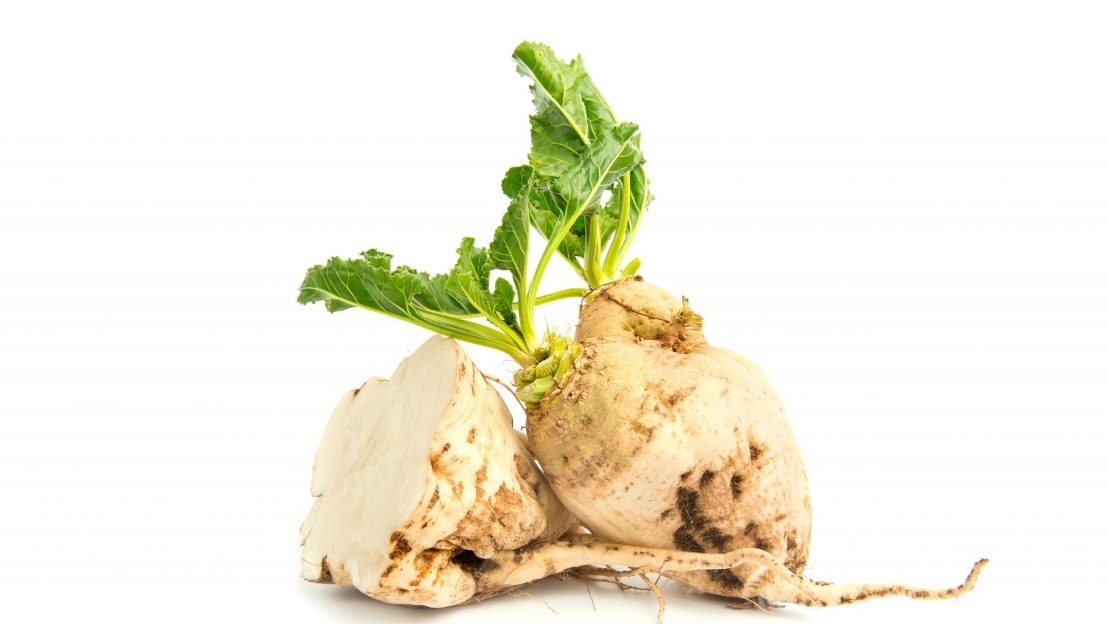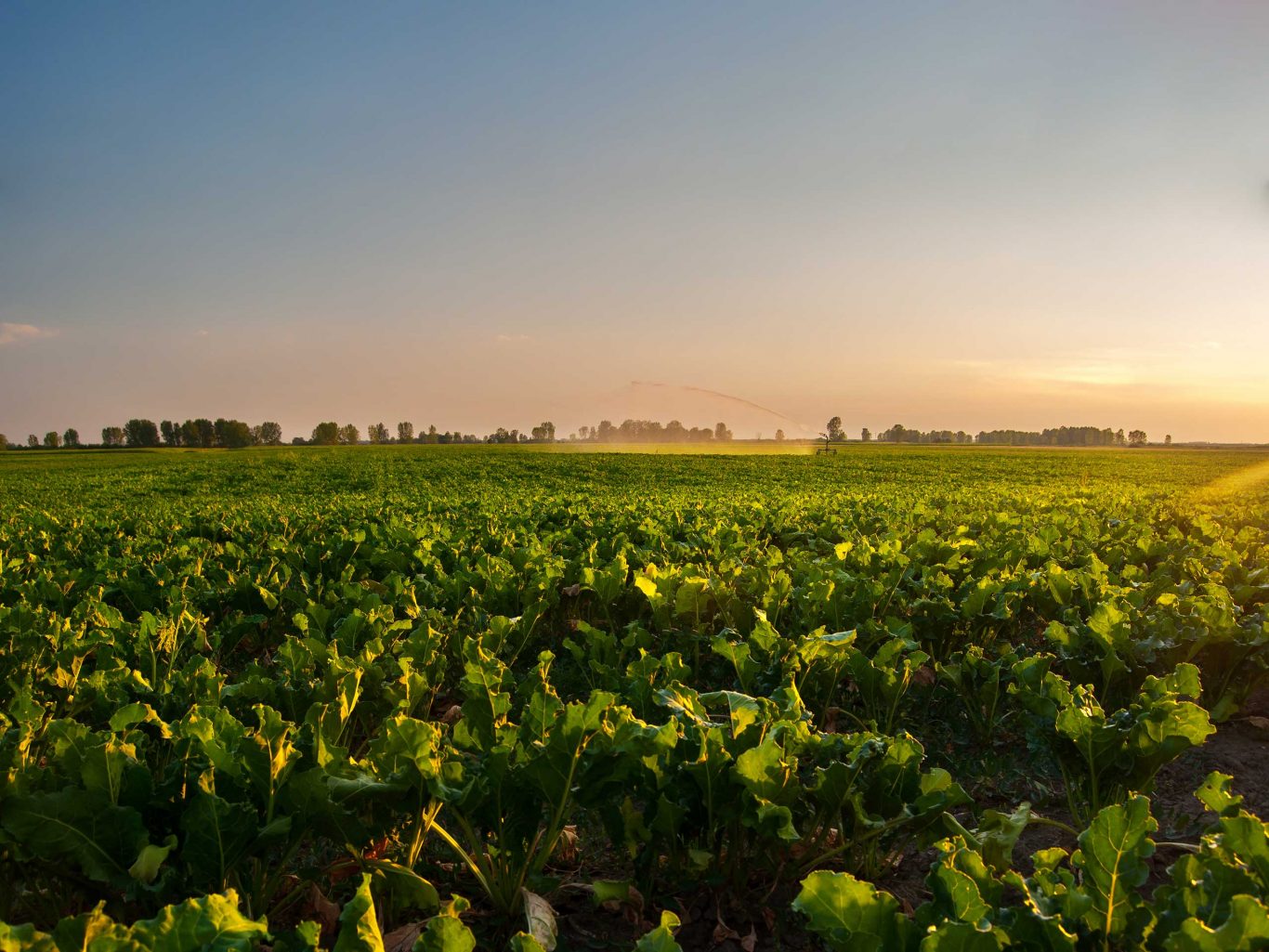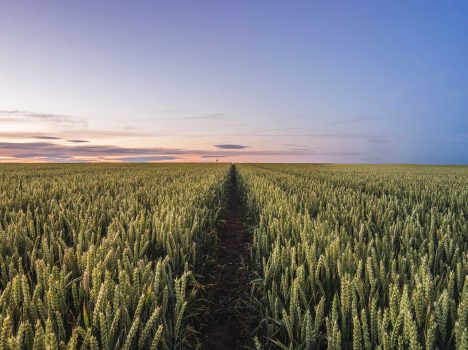European number 2 for processing sugar beets, Tereos transforms the raw material in several different forms, meaning that it has an extensive product range.
Key figures
An essential source of sugar
Along with sugar cane, sugar beet is one of the two principal sources of sucrose used around the world. In temperate climates, the seeds are sown in March and the harvest (known as the campaign) begins in September.

Industrial process
The sugar beets are washed, cut into strips and then soaked in hot water. The sugar stored in the root is released because of the heat, then the juice that is concentrated as a syrup is purified and filtered. With a 65% sugar content, it is then boiled under vacuum to trigger crystallisation.
Other applications
Sugar beets are not only used to manufacture sugar. Tereos also uses them to obtain alcohol and bioethanol from the fermentation or distillation of the sugar beets, waste and residue (molasses) produced during processing.
The Group also produces animal feed: fibres resulting from the extraction of juice from sugar beets, called pulp, are used as feed for cattle.
In addition, thanks to a process of methanisation, sugar beet can be processed to obtain biogas and vinasse for heating boilers, reducing CO2 emissions released into the atmosphere and making it possible to achieve significant energy savings. Tereos makes maximum use of the raw material by reusing the water naturally contained in sugar beets by reintroducing it into the manufacturing process and then into the natural environment.
A sustainable offer
After launching the production of organic beet sugar, the cooperative is continuing to develop its offer by proposing since 2020, a range of sugar from HVE (High Environmental Value) beets. This approach is in line with the Group’s willingness to support the agronomic changes desired by society and the agricultural world.





